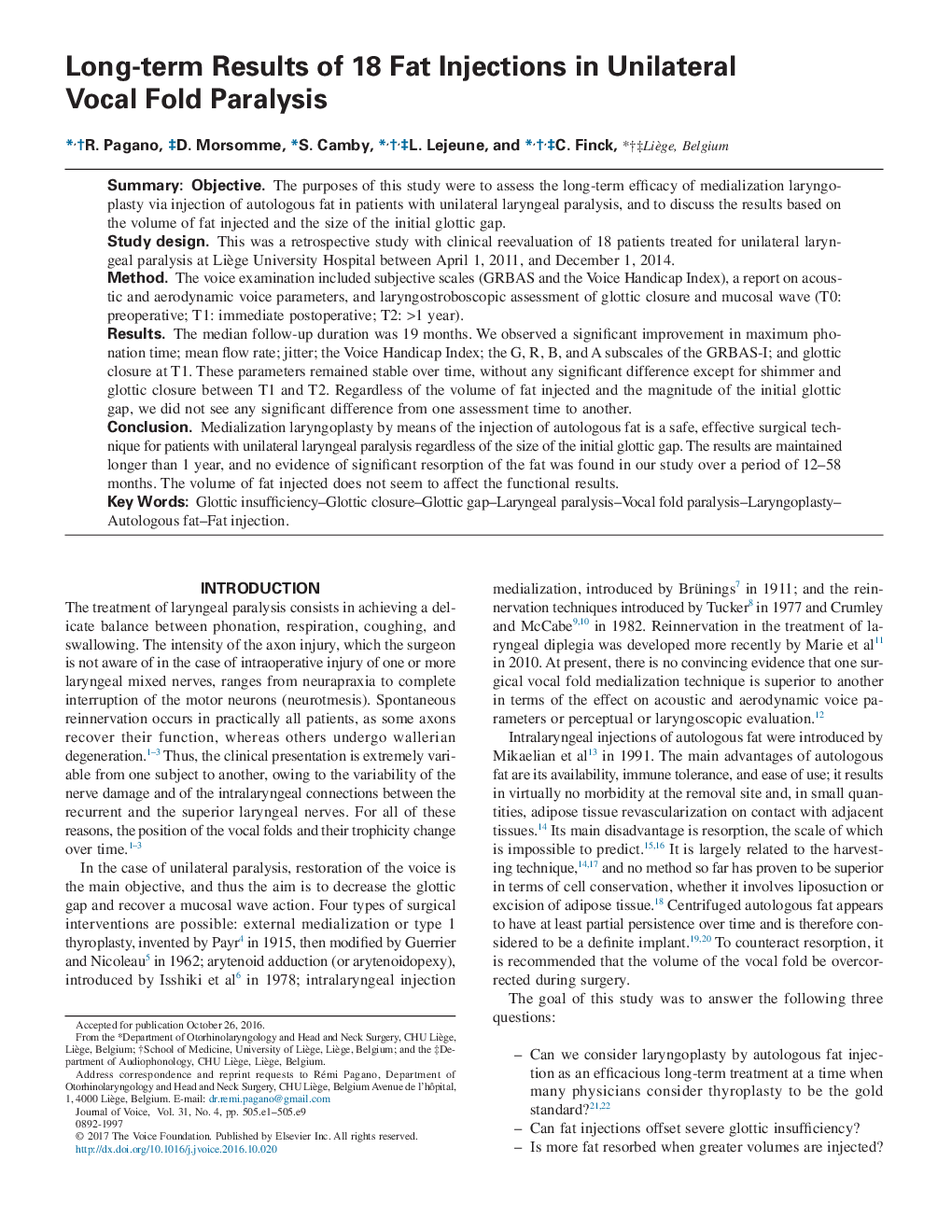| Article ID | Journal | Published Year | Pages | File Type |
|---|---|---|---|---|
| 5124179 | Journal of Voice | 2017 | 9 Pages |
SummaryObjectiveThe purposes of this study were to assess the long-term efficacy of medialization laryngoplasty via injection of autologous fat in patients with unilateral laryngeal paralysis, and to discuss the results based on the volume of fat injected and the size of the initial glottic gap.Study designThis was a retrospective study with clinical reevaluation of 18 patients treated for unilateral laryngeal paralysis at Liège University Hospital between April 1, 2011, and December 1, 2014.MethodThe voice examination included subjective scales (GRBAS and the Voice Handicap Index), a report on acoustic and aerodynamic voice parameters, and laryngostroboscopic assessment of glottic closure and mucosal wave (T0: preoperative; T1: immediate postoperative; T2: >1 year).ResultsThe median follow-up duration was 19 months. We observed a significant improvement in maximum phonation time; mean flow rate; jitter; the Voice Handicap Index; the G, R, B, and A subscales of the GRBAS-I; and glottic closure at T1. These parameters remained stable over time, without any significant difference except for shimmer and glottic closure between T1 and T2. Regardless of the volume of fat injected and the magnitude of the initial glottic gap, we did not see any significant difference from one assessment time to another.ConclusionMedialization laryngoplasty by means of the injection of autologous fat is a safe, effective surgical technique for patients with unilateral laryngeal paralysis regardless of the size of the initial glottic gap. The results are maintained longer than 1 year, and no evidence of significant resorption of the fat was found in our study over a period of 12-58 months. The volume of fat injected does not seem to affect the functional results.
